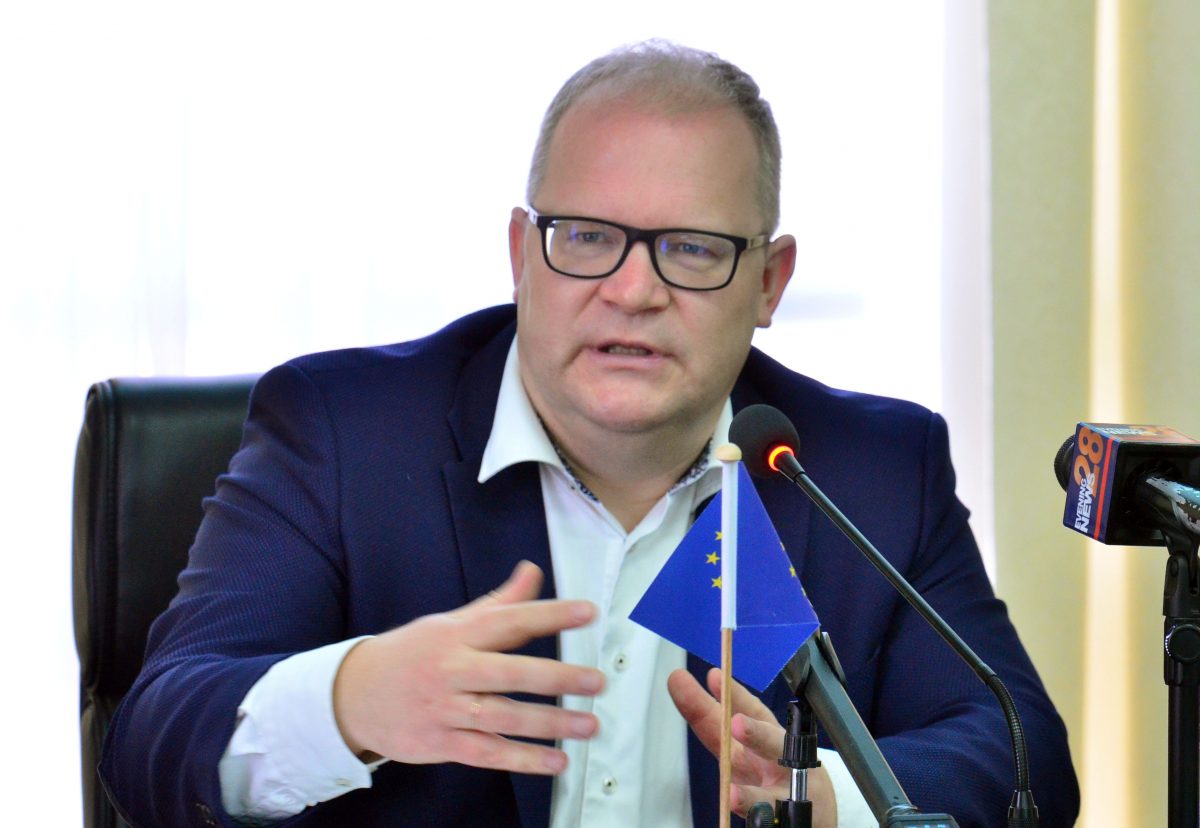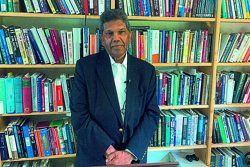One year after it left Guyana, the European Union Electoral Observation Mission (EU EOM) has returned in a bid to help kick start electoral reform.
“Now is the time for decisions and actions. For election reform to be effective its implementation needs to begin well before the next elections are called. Inclusive and transparent reform process helps build confidence in elections and their results,” Chief Observer Urmas Paet told a press conference yesterday at the Arthur Chung Conference Centre (ACCC).
Attempts have already been made to have discussions on electoral reform with several stakeholders, including the President, Opposition Leader, Speaker and Deputy Speaker of the National Assembly, The Attorney General, Chief Justice, Minister of Foreign Affairs and Chair of the Guyana Elections Commission (GECOM). The entities will be joined by other constitutional commissions, civil society and media at a roundtable on Monday at the ACCC.
According to Paet, the objective of the current visit inclusive of a stakeholder engagement is to initiate discussion on the way forward and possibly find consensus for implementation of some if not all of the EOM’s proposals.
The European politician acknowledged that the current lack of engagement between the Opposition and Government is not conducive for the necessary reform.
“It is clear that there is lack of direct contact between government and the opposition. The message was from both sides…the opposition today may be government tomorrow, so for most important issues in society it is good if they can talk to each other to discuss together these issues,” he noted.
During Monday’s engagement particular focus is likely to be placed on what has been labelled “priority recommendations”. These eight recommendations centre on a call for legislative change, inclusive of a review and consolidation of the “fragmented elections legislation to strengthen legal clarity and certainty.”
“It is obvious that what happened last year should not happen again and I guess some changes at least in legislation concerning elections and then some of the technical practices should increase the possibility that it will not happen again,” Paet said.
He suggested that rather than the more than five pieces of legislation managing Guyana’s electoral process, there should be one clear complete electoral law which describes all electoral processes and procedures.
Currently Guyana’s electoral legislation includes the Constitution (1980, as amended) as well as the Representation of the People Act (1964, as amended), the National Registration Act (1967, as amended) and the Elections Laws Act (1996). The later three are amended by the Election Laws (Amendment) No. 15 (2000) and by the Local Democratic Organs Act (1980, as amended) while the framework is further supplemented by other acts, most notably the National Assembly (Validity of Elections) Act (1964, as amended) and GECOM’s orders and notices.
Also recommended is a reform of the constitution in relation to the composition of GECOM. Specifically the recommendation calls for a national consultation process to overhaul the composition and functioning of the Elections Commission, notably to ensure a more inclusive representation of the various components of the Guyanese society and political spectrum. Currently, the commission comprises three representatives each from government and the main opposition as well as a chair selected by the president from a list submitted by the opposition leader.
Further since a lack of accountability and oversight in political party and campaign finance contributes to an uneven playing field, the EOM has recommended that Guyana develop, in a consultative process, effective legislation to regulate political finance, taking the
principles of equality, transparency and accountability into account. Such legislation could provide transparency in campaign incomes and establish reasonable limits for campaign expenditure as well as disclosure and reporting requirements and effective sanctions.
“Consideration may also be given to the establishment of an independent over-sight body,” it stressed.
In all cases the EU stands ready to assist.
“I would like to stress that the EU stands ready to assist Guyana with the implementation of any of the EU EOM recommendation and with the electoral reform process in general,” Paet concluded.
The EU’s EOM was withdrawn from Guyana on March 20 last year amid the deadlock over the results of the general elections and the emerging COVID-19 pandemic.
It said then: “The EU EOM calls on all stakeholders to complete the electoral process in a credible and transparent way in accordance with legal requirements”.
The results were not concluded until August 2nd, 2020










